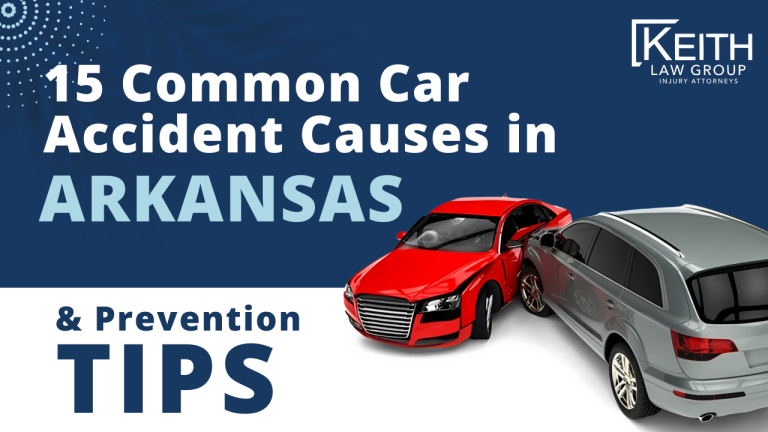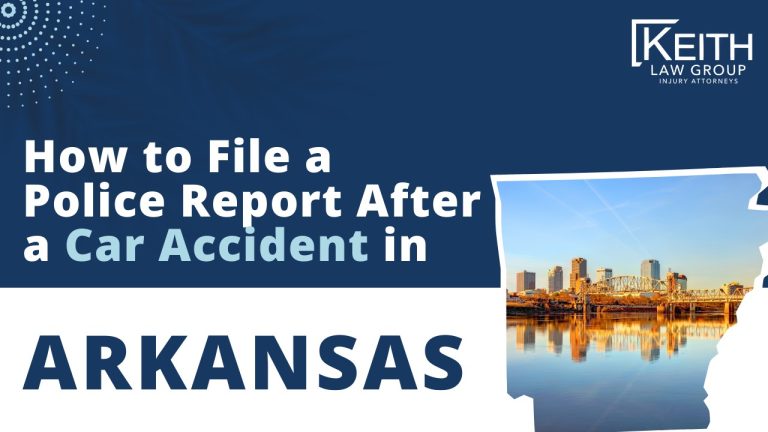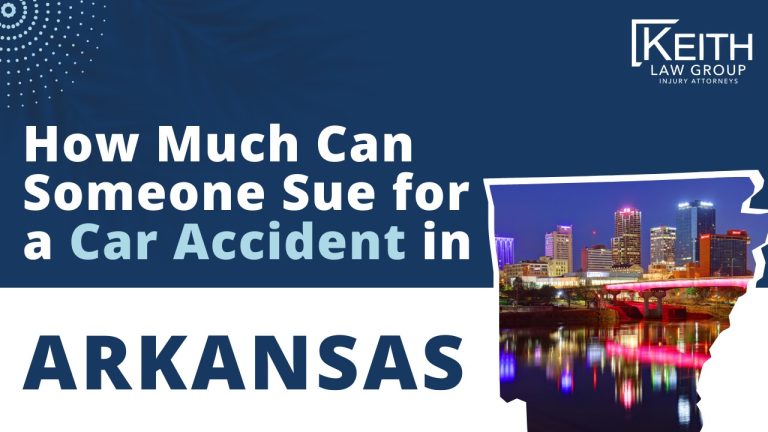- Published: June 19th, 2023
- Last Updated: June 12th, 2025

Attorney Sean T. Keith has been a personal injury lawyer for 30+ years, a nationally recognized Top 100 Trial Lawyer, and top car accident lawyer & motor vehicle accident lawyer in Arkansas.
Legally Reviewed
This article has been written and reviewed for legal accuracy and clarity by the team of writers and attorneys at Keith Law Group and is as accurate as possible. This content should not be taken as legal advice from an attorney. If you would like to learn more about our owner and experienced injury lawyer, Sean T. Keith, you can do so here.
Fact-Checked
Keith Law Group does everything possible to make sure the information in this article is up to date and accurate. If you need specific legal advice about your case, contact us. This article should not be taken as advice from an attorney.
Sean Keith's Accollades & Practice Areas He Specializes In
- Over $20 Million recovered in Medical Device Injury Lawsuits.
- Over $13 Million recovered in Car Accident Lawsuits and other Motor Vehicle Accident Lawsuits.
- Over $100 Million recovered in total on behalf of clients.
- Sean represents clients in cases involving personal injuries, car accidents, motorcycle accidents, truck accidents, wrongful death, slip and falls, nursing home abuse cases, nursing home elopement cases, and more.
Intro to the Most Common Causes of Arkansas Car Accidents
Ever wondered what’s behind the alarming number of fatal crashes, car accidents, and injuries in Arkansas?
Understanding the causes is crucial for improving road safety, reducing collisions, and preventing fatalities.
Let’s dive into some common factors that contribute to these unfortunate incidents, including drunk drivers and poor weather.

Arkansas roads witness a considerable amount of traffic accidents, including fatal crashes, impacting not only those involved but also their families and communities.
By identifying the root causes, such as drunk drivers and dangerous intersections, we can work together to implement effective solutions and create safer driving conditions for everyone, ultimately reducing fatalities.
So buckle up, as we explore the world of car accident causes in Arkansas!
Table of Contents
Driver Error: Leading Cause of Crashes in Arkansas
Distracted Driving Incidents
Distracted driving can involve a variety of activities and road hazards, such as:
- Texting or talking on the phone
- Eating or drinking
- Adjusting the radio or navigation system
- Talking to passengers
These distractions take a distracted driver’s attention away from the road, increasing the likelihood of fatal car accidents.
According to the National Highway Traffic Safety Administration (NHTSA), distracted driving was responsible for 3,142 deaths in fatal accidents in 2019 alone, leading to car crashes and fatal crashes.
Speeding and Aggressive Behavior
Another common cause of driver error in traffic accidents is speeding and aggressive behavior behind the wheel distracted drivers too.
Drivers who speed are more likely to lose control of their vehicle and have less time to react to potential hazards on the road, leading to car crashes and fatal accidents.
Some examples of aggressive driving behaviors that can result in fatal crashes include:
- Tailgating
- Weaving in and out of traffic
- Excessive honking or flashing headlights
- Cutting off other drivers
These reckless driving behaviors, such as drunk and impaired driving, not only put the aggressive driver at risk but also endanger other motorists sharing the road, potentially leading to traffic accidents.
Among these accidents, the unfortunate reality of hit-and-run incidents on Arkansas roads often result in severe injuries or fatalities to unsuspecting victims.
Failure to Yield or Maintain Safe Distance
Failing to yield right-of-way or maintain a safe following distance is another form of driver error, such as reckless driving or drunk driving, that can lead to crashes.
When drivers don’t respect traffic signals, signs, road hazards, or other vehicles’ right-of-way, they increase their chances of causing an accident by a significant percent.
Common scenarios where failure to yield occurs include:
- Turning left at an intersection without yielding to oncoming traffic can result in a crash, as this drive behavior contributes to a significant percent of accidents.
- Merging onto a highway without giving way to existing traffic while driving can increase the risk by a certain percent.
- Not stopping for pedestrians at crosswalks
Maintaining a safe following distance allows drivers enough time and space to react if the vehicle in front suddenly stops or slows down by a certain percent.
A good rule of thumb is using the “three-second rule”: when the vehicle in front passes a fixed object, count “one-thousand-one, one-thousand-two, one-thousand-three.”
If your car reaches the object before you finish counting, increase your speed limit and following distance.
Environmental Factors in Arkansas Accidents
Weather-related hazards
Driving on Arkansas roads can be treacherous during certain weather conditions.
Some common environmental factors that contribute to car accidents include:
- Rain: Slippery roads and reduced visibility make the drive more difficult.
- Fog: Dense fog can significantly reduce visibility, making it challenging for drivers to see other vehicles, pedestrians, or obstacles on the road.
- Ice: Frozen roads can cause cars to slide and lose control, especially if drivers are not prepared for icy conditions.
These weather-related hazards are essential to consider when planning to drive in Arkansas.
It’s crucial to adjust your driving behavior according to the weather conditions and maintain a safe distance from other vehicles while you drive.
Poor road conditions
Poorly maintained roads are another significant factor contributing to car accident causes in Arkansas.
Drivers should be aware of potential hazards such as:
- Potholes: These can cause damage to your vehicle or even lead to a loss of control if hit while you drive at high speeds.
- Debris: Fallen tree branches, rocks, or other debris on the road may cause drivers swerve suddenly or brake abruptly, increasing the risk of an accident.
- Uneven surfaces: Uneven pavement or poorly marked construction zones can create dangerous situations for unsuspecting motorists during their drive.
Always stay alert while driving and report any hazardous road conditions you encounter during your drive.
This will help keep you and others safe on Arkansas roads.
Limited visibility due to darkness or glare
Limited visibility is another common environmental factor in car accident causes.
Darkness and glare from bright lights can make it difficult for drivers to see their surroundings clearly.
Some examples include:
- Driving at night: Reduced visibility increases the risk of collisions when you drive, as it becomes harder to see other vehicles, pedestrians, animals, or objects on the road.
- Glare from headlights: Oncoming headlights can temporarily blind drivers, making it challenging to navigate safely.
- Sun glare: Bright sunlight reflecting off windows or shiny surfaces may obstruct a driver’s view of the road.
To minimize the risk of accidents caused by limited visibility, make sure your headlights are functioning correctly and use your sun visor when needed.
Always be extra cautious when driving in low-light conditions or areas with bright, direct sunlight.
Vehicle Issues and Malfunctions
Tire Blowouts or Worn Brakes
One of the common car accident causes is tire blowouts.
A tire blowout can happen suddenly, leading to loss of control over the vehicle and resulting in motor vehicle accidents.
Some factors that contribute to tire blowouts include:
- Overinflated tires
- Underinflated tires
- Potholes or sharp objects on the road
- Excessive wear and tear
Similarly, worn brakes can also lead to car accidents unrelated to.
When brakes are not functioning properly, it becomes difficult for drivers to stop their cars in time, increasing the risk of crashes.
Engine Failure or Transmission Issues
Engine failure or transmission issues are other significant factors contributing to car crashes.
If a vehicle’s engine fails while on the road, it can cause sudden loss of power, making it challenging for drivers to maintain control over their cars.
Some common reasons for engine failure include:
- Overheating
- Oil leakage
- Broken timing belt
On the other hand, transmission issues can make it difficult for motor vehicles to switch gears smoothly, affecting their performance on the road and potentially causing motor vehicle accidents.
Faulty Headlights or Taillights
Properly functioning headlights and taillights are crucial for safe driving, especially during night driving or adverse weather conditions like fog and rain.
Faulty headlights can impair a driver’s ability to see obstacles on the road, while non-working taillights make it harder for other drivers to notice your vehicle from behind.
Some common causes of faulty headlights and taillights include:
- Burned-out bulbs
- Electrical problems
- Design defects in the lighting system
To minimize the risk of car accidents caused due to vehicle issues and malfunctions, consider taking these preventive measures:
- Regularly inspect your tires for proper inflation levels, tread depth, and signs of damage.
- Check your brakes periodically to ensure they are in good working condition.
- Schedule routine maintenance for your engine and transmission, including oil changes, coolant checks, and belt replacements.
- Test your headlights and taillights frequently, replacing any burned-out bulbs or addressing electrical issues as needed.
By taking these steps, you can help reduce the risk of motor vehicle accidents caused by vehicle issues and malfunctions.
Remember that maintaining your car in good condition not only ensures your safety but also contributes to the well-being of other drivers on the road.
So always stay vigilant about potential problems with your vehicle and address them promptly to minimize accidents and injuries on the road.
Disobeying Arkansas Traffic Rules
Running Red Lights and Stop Signs
Reckless drivers often ignore traffic signals and stop sign, such as red lights and stop signs.
This dangerous behavior can lead to car accidents, as it increases the risk of collisions with other vehicles or pedestrians.
Some examples of poor decision-making include:
- Speeding through yellow lights
- Ignoring stop signs at intersections
- Turning right on red without coming to a complete stop first
These actions not only are unsafe lane put the driver at risk but also endanger others on the road.
Illegal Turns and Lane Changes
Another common cause of car accidents in Arkansas is making illegal turns and unsafe lane changes.
Examples of these risky maneuvers include:
- Changing lanes without using turn signals
- Making U-turns where prohibited by traffic signs
- Turning left from the wrong lane or across solid lines on the street
Such aggressive driving behaviors increase the likelihood of collisions, as they make it difficult for other motorists to anticipate and react to sudden changes in traffic patterns.
Not Using Turn Signals
Failing to use turn signals is a form of distracted driving that can result in serious consequences.
When other drivers fail or neglect this simple yet crucial communication tool, they create confusion and uncertainty for those around them.
Some common scenarios where not using turn signals can cause accidents are:
- Merging onto highways or changing lanes without signaling intentions
- Making sudden stops or turns without warning other drivers
- Exiting parking lots or driveways onto busy streets without indicating direction
By simply using turn signals consistently, drivers can help prevent misunderstandings and reduce the risk of car accidents.
Reckless Driving Behaviors
Many car accident causes stem from reckless driving behaviors teen drivers that disregard basic traffic rules and safety precautions.
These actions often involve excessive speed, tailgating, road rage, or aggressive driving tactics like weaving in and out of traffic.
Here are some examples:
- Exceeding speed limits in residential areas or school zones
- Driving the wrong way on one-way streets or highways
- Engaging in street racing or other dangerous stunts
Such reckless behaviors by young drivers not only increase the risk of accidents but can also lead to severe legal penalties and fines.
The Importance of Obeying Traffic Rules
Disobeying traffic rules, whether intentionally or due to carelessness, is a significant factor in many car accidents.
By following the established guidelines for speed limits, signaling turns, and respecting traffic signs, drivers can reduce their chances of being involved in a collision.
Furthermore, practicing defensive driving techniques like maintaining a safe following distance and staying alert for potential hazards can help protect everyone on the road.
Driving Under the Influence (DUI) in Arkansas
Alcohol-impaired drivers causing accidents
Drunk driving is a major cause of car accidents in Arkansas.
When people get behind the wheel after consuming alcohol, their judgment and reaction times are impaired, leading to dangerous situations on the road.
Some examples of how alcohol can affect driving include:
- Slower reaction times
- Difficulty concentrating
- Poor coordination
- Reduced ability to judge distances and speeds
These factors combined greatly increase the likelihood that drunk drivers may injure themselves and become involved in a car accident lawsuit.
Drug use affecting reaction times
Aside from alcohol, drug use also contributes to most car accidents and accident causes in Arkansas.
Many drugs, both legal and illegal, can impair a person’s ability to drive safely.
Some common drugs that can affect driving include:
- Prescription medications like sedatives or painkillers
- Over-the-counter medicines such as allergy medications or sleep aids
- Illegal drugs like marijuana, cocaine, or methamphetamine
When drivers use these substances before getting behind the wheel, they may experience drowsiness driver fatigue, poor concentration, and slower reaction times – all of which increase the risk of a car accident.
Penalties for DUI convictions
In Arkansas, there are strict penalties for those convicted of driving under the influence (DUI).
These penalties are designed to discourage impaired driving and keep roads safer for everyone.
Consequences for DUI convictions may include:
- Fines: Depending on the number of previous offenses and other factors, fines can range from $150 to $5,000.
- Jail time: First-time offenders may face up to one year in jail; repeat offenders could face longer sentences.
- License suspension: A person’s driver’s license may be suspended anywhere from six months to four years or more.
- Ignition interlock device: In some cases, drivers convicted of DUI must install an ignition interlock device in their vehicle that requires a breath sample before the car will start.
In addition to legal penalties, those convicted of DUI may also face increased insurance rates and difficulty finding employment due to their criminal record.
Furthermore, victims of accidents involving intoxicated drivers may need to pursue car accident settlements to receive just compensation for their damages and suffering.
To sum it up, driving under the influence of alcohol or drugs is a major cause of car accidents in Arkansas.
Impaired drivers pose a significant risk to themselves and others on the road, and the state has implemented strict penalties for those caught driving while intoxicated.
By understanding the dangers of drunk driving and the consequences that come with it, we can work together to reduce car accident causes in Arkansas and make our roads safer for everyone.
Tips and Suggestions to Prevent Car Accidents in Arkansas
Regular Vehicle Maintenance Checks
Keep your car in tip-top shape by performing regular maintenance checks.
This can help you avoid unexpected breakdowns and other issues that could lead to a car accident.
Some essential maintenance tasks include:
- Checking tire pressure and tread depth
- Replacing worn-out brake pads
- Ensuring headlights, taillights, and turn signals are functioning properly
- Changing the oil regularly
- Inspecting belts and hoses for wear
By keeping up with these tasks, you’ll reduce the risk of encountering road hazards due to vehicle malfunction.
Defensive Driving Techniques
Defensive driving is all about anticipating potential dangers on the road and taking steps to avoid them.
By practicing safe driving techniques, you can significantly decrease your chances of being involved in a car accident.
Some key defensive driving tips include:
- Maintain a safe following distance: Keep at least one car length between your vehicle and the one ahead for every 10 mph you’re traveling.
- Scan the road ahead: Continuously look 15 seconds ahead of your current position to spot potential hazards early.
- Proper lane positioning: Stay centered in your lane, avoiding blind spots of other drivers.
- Be prepared for sudden stops or changes in traffic flow: Always have an escape route planned in case something unexpected happens.
Remember, defensive driving is not just about reacting to what’s happening around you; it’s also about being proactive and making smart decisions behind the wheel.
Adhering to Traffic Laws and Speed Limits
One of the most effective ways to prevent car accidents is simply by obeying traffic laws and posted speed limits.
Not only will this keep you out of trouble with law enforcement, but it will also ensure that you’re doing everything possible to stay safe on the road.
Here are some key points to remember:
- Follow posted speed limits at all times.
- Obey traffic signals and signs, such as stop signs and yield signs.
- Use your turn signals when changing lanes or making turns.
- Always come to a complete stop at stop signs and red lights.
By following the recommended steps to take after a car accident in this article, you can help reduce the risk of further complications and ensure the best possible outcome for all parties involved.
If you’re ever unsure about a specific traffic law, don’t hesitate to reach out for a free consultation with a local expert who can provide guidance on the best course of action.
Arkansas Car Accident Causes: Conclusion
In summary, car accidents in Arkansas can be attributed to various factors.
Driver error remains the leading cause, followed by environmental factors and vehicle issues.
Disobeying traffic rules and driving under the influence (DUI) also contribute significantly to these accidents.
Understanding your rights and the necessary steps in filing car accident insurance claims is crucial for a fair settlement.
Don’t hesitate to consult with a car accident attorney to help you navigate the claims process and negotiate the compensation you deserve.
Keep in mind that there is a statute of limitations for car accidents in Arkansas, which means that you have a limited time frame to take legal action.
Make sure to consult with a legal professional to understand your rights and deadlines after an accident.
By taking these precautions, you can help make Arkansas roads safer for everyone.
Now that you’re informed about the common causes of car accidents in Arkansas, take action to protect yourself and others on the road.
Drive responsibly and stay safe out there!
Frequently Asked Questions
-
What is the most common driver error that leads to car accidents in Arkansas?
The most common driver error is distracted driving, which includes texting or talking on a cell phone while driving.
-
How do environmental factors contribute to car accidents in Arkansas?
Environmental factors such as rain, fog, snow, ice, or bright sunlight can reduce visibility or create slippery road conditions that lead to accidents.
-
What are some examples of vehicle issues that may cause an accident?
Vehicle issues include tire blowouts, brake failures, steering malfunctions and other mechanical problems that could result in loss of control or a collision.
-
How does disobeying traffic rules increase the risk of a car accident?
Ignoring traffic signals or signs (such as stop signs), speeding, tailgating or making illegal turns increases the likelihood of causing an accident due to lack of proper communication with other drivers on the road.
-
What penalties can one face for DUI-related offenses in Arkansas?
Penalties for DUI-related offenses can range from fines and license suspension/revocation to jail time depending on prior convictions and severity of offense.
-
Are there any specific tips for driving safely in Arkansas?
Some tips include maintaining a safe following distance, adjusting your speed according to road conditions, avoiding distractions while driving, and keeping your vehicle well-maintained.
-
How can I report a reckless or impaired driver in Arkansas?
If you witness a reckless or impaired driver on the road, contact local law enforcement by dialing 911 or the non-emergency number to report the incident.
Provide as much information as possible about the vehicle and its location.
All Posts for the Car Accident Lawsuit Legal Guide
Practice Areas
- 3M Earplug
- Belviq
- Bladder Sling
- Camp Lejeune Water Contamination
- Defective Medical Device
- Hernia Mesh
- Hip Replacement
- NEC Infant Formula
- Medtronic Insulin Pump
- Paraquat
- Philips CPAP
- Roundup
- Talcum Powder
- Tylenol Autism & ADHD
- Zantac
- Bicycle Accidents
- Boat Accidents
- Construction Accidents
- Dog Bite
- Drug Injuries
- Electric Shock Injuries
- Nursing Home Abuse
- Nursing Home Bedsore
- Nursing Home Falls
- Nursing Home Infection
- Nursing Home Sexual Abuse
- Personal Injuries
- Premises Liability
- Slip and Fall
- Traumatic Brain Injuries
- Wrongful Death
- 3M Earplug
- Belviq
- Bladder Sling
- Camp Lejeune Water Contamination
- Defective Medical Device
- Hernia Mesh
- Hip Replacement
- NEC Infant Formula
- Medtronic Insulin Pump
- Paraquat
- Philips CPAP
- Roundup
- Talcum Powder
- Tylenol Autism & ADHD
- Zantac
- Bicycle Accidents
- Boat Accidents
- Construction Accidents
- Dog Bite
- Drug Injuries
- Electric Shock Injuries
- Nursing Home Abuse
- Nursing Home Bedsore
- Nursing Home Falls
- Nursing Home Infection
- Nursing Home Sexual Abuse
- Personal Injuries
- Premises Liability
- Slip and Fall
- Traumatic Brain Injuries
- Wrongful Death
You pay
Nothing
unless we win
Do You Have A Case?
Recent Legal Posts & Articles
Recent Legal Guides

Choose Us For Your Personal Injury Case
- Available 24/7
- No Upfront Fees
- Free Case Evaluation
- No Fees Unless We Win!















